I went on my first safari trip to South Africa. I won't make these 10 mistakes next time.
I spent a week on safari in South Africa, visiting three different reserves.
I found that planning was essential and that I always needed to have my camera ready.
Next time I would bring warmer clothing and a buff for dust control.
I spent a week on safari in South Africa, visiting three different reserves.
It was a thrilling adventure I'll never forget and I got to see incredible creatures like hyenas, elephants, and lions.
It's no wonder more travelers are looking to weave game reserves into their trips. According to the most recent data collected by travel agency Go2Africa, interest in beach and safari combo trips was up 20% from 2022 to 2023 alone.
But although the trip was great, it wasn't always easy — and I had a few missteps from the planning phase to the wildlife observation.
Here are mistakes I made on my trip that that everyone should avoid on their first safari.
We booked our trip during a busy part of the year.
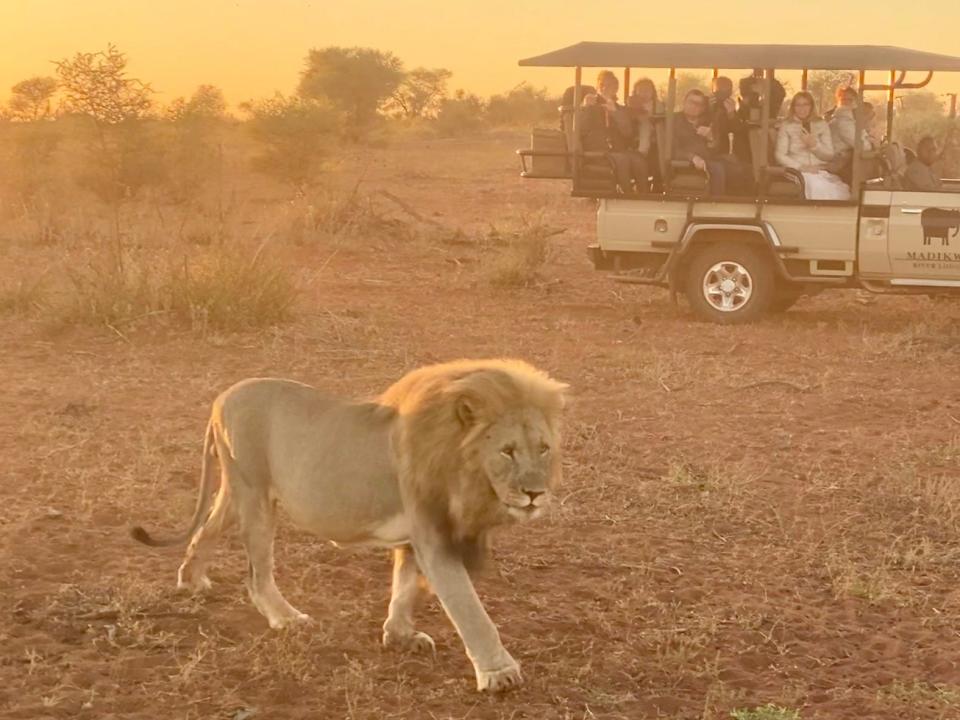
I try to avoid traveling during holidays, which often means more crowds. Unfortunately, we ended up booking during Easter break, which was the end of summer in the Southern Hemisphere.
The lodges were full and busy with lots of kids and the prices were higher. We still had a great time but if we'd booked different dates — maybe during a low season — we might've paid less for a more private experience.
The mornings were cold, even in summer.
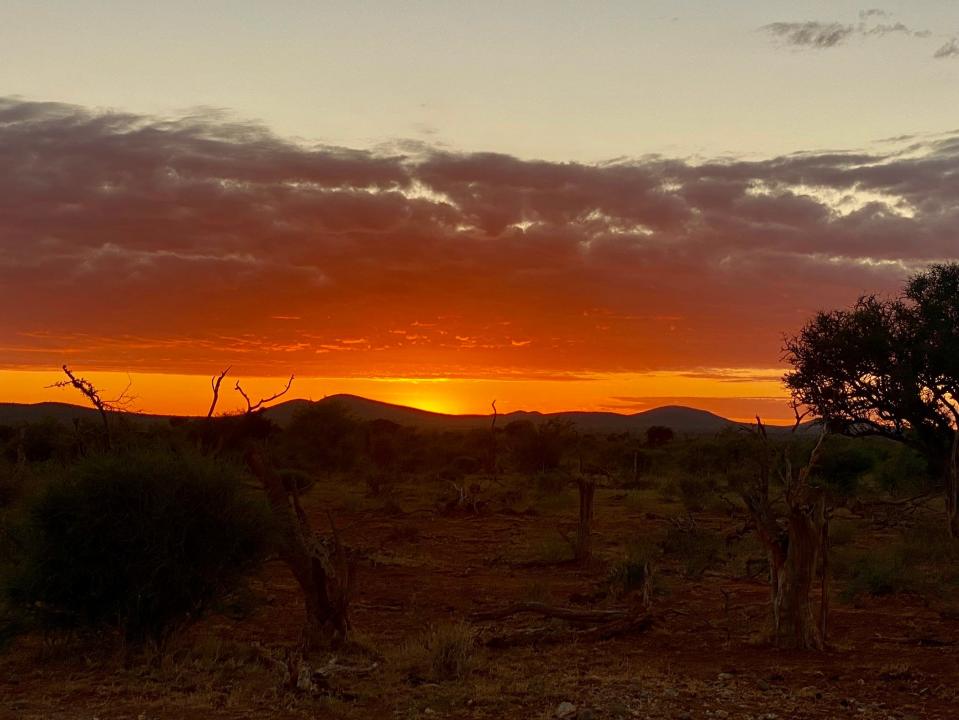
Our morning game drives started before sunrise in an open-air jeep.
The safari guide was wearing shorts so I thought I would be comfortable matching that. Wrong! I was so cold on our first ride.
I quickly learned that, although it was summer, a beanie and down jacket would've been cozy on the drive.
I missed photo opportunities because my camera was not ready.
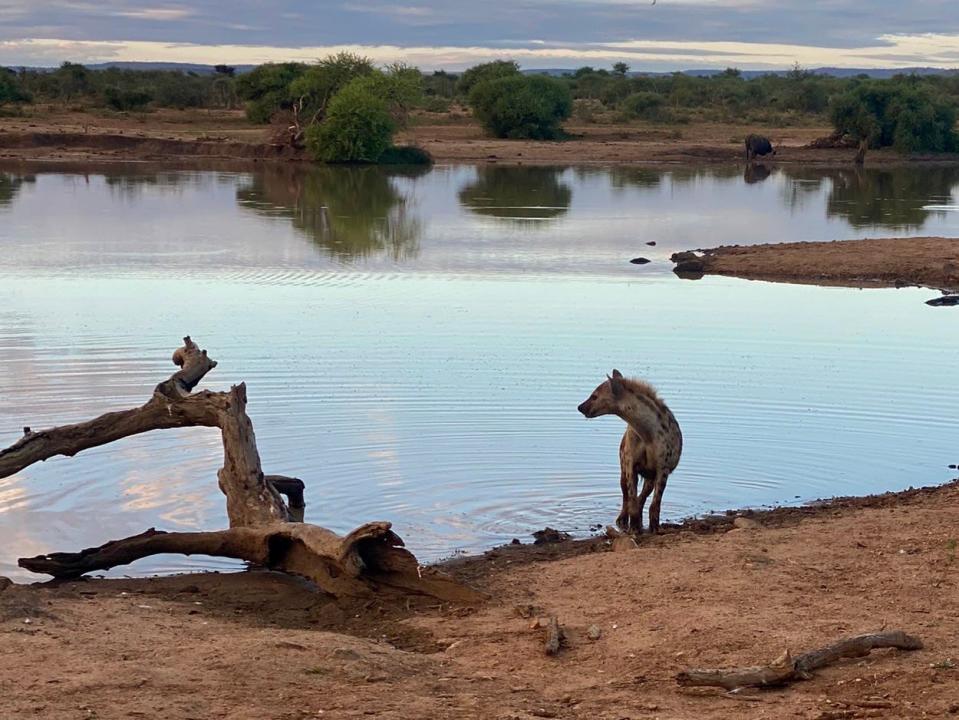
I knew I wanted to keep my camera out at all times when on a game drive. But after several hours of driving, we were approaching the gate and I tucked my phone away.
That's when we turned a corner and saw a large white rhino facing us in the middle of the road. It was a dramatic moment I have captured in my head, but I didn't have time to snap a photo before it darted into the bushes.
Next time, I'd be better prepared for animals that might pop up near the exit.
I had no idea how dusty the roads were going to be.
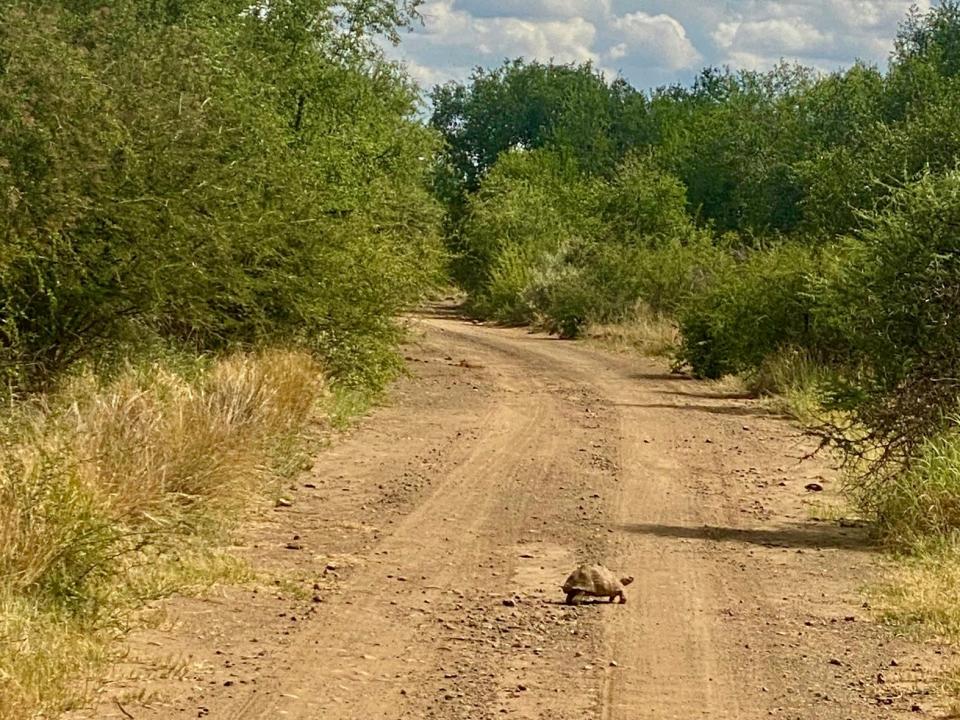
The safari terrain changed based on where the guide drove to each day, and some routes were quite dusty.
After a day of exploring, I felt like I had dust in my ears, eyes, nose, and mouth. Sunglasses helped shield my eyes but I wish I'd brought a buff to cover the rest of my face.
Driving between game reserves made me more tired than I'd expected.
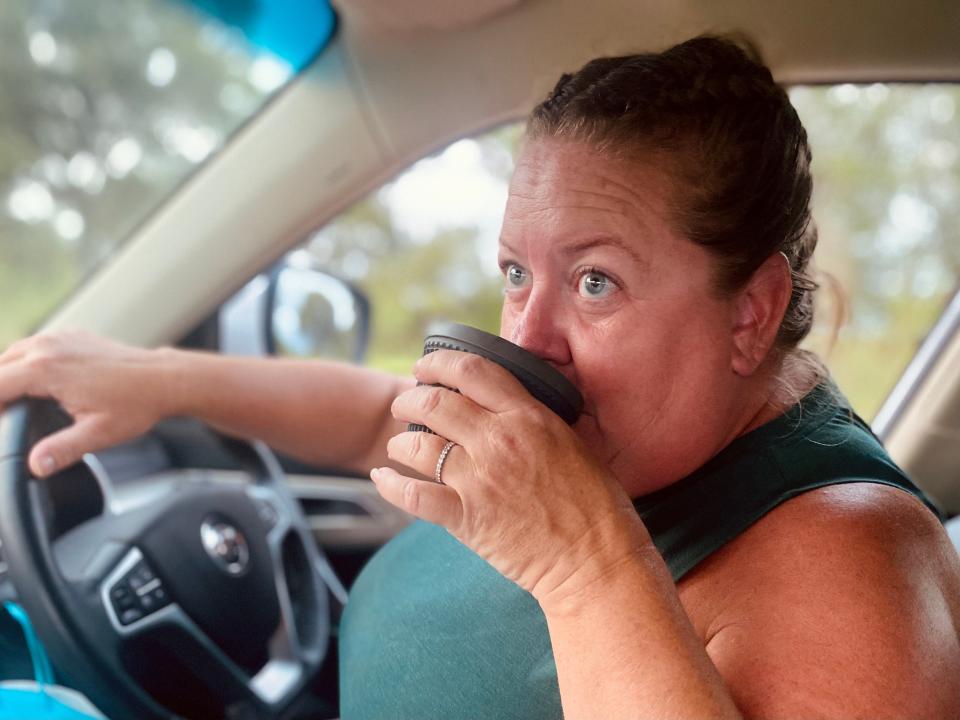
Our safari adventure included visits to three different wildlife reserves and we rented a car to get between them.
On each transition day, we had a morning game drive, then the drive to get to the next reserve, and then an evening game drive there.
That was a lot of sitting, and by the time I got to the evening game drive, I was tired. Next time, I might space my schedule out more.
I made a classic mistake of leaving the car door open when unloading the luggage.
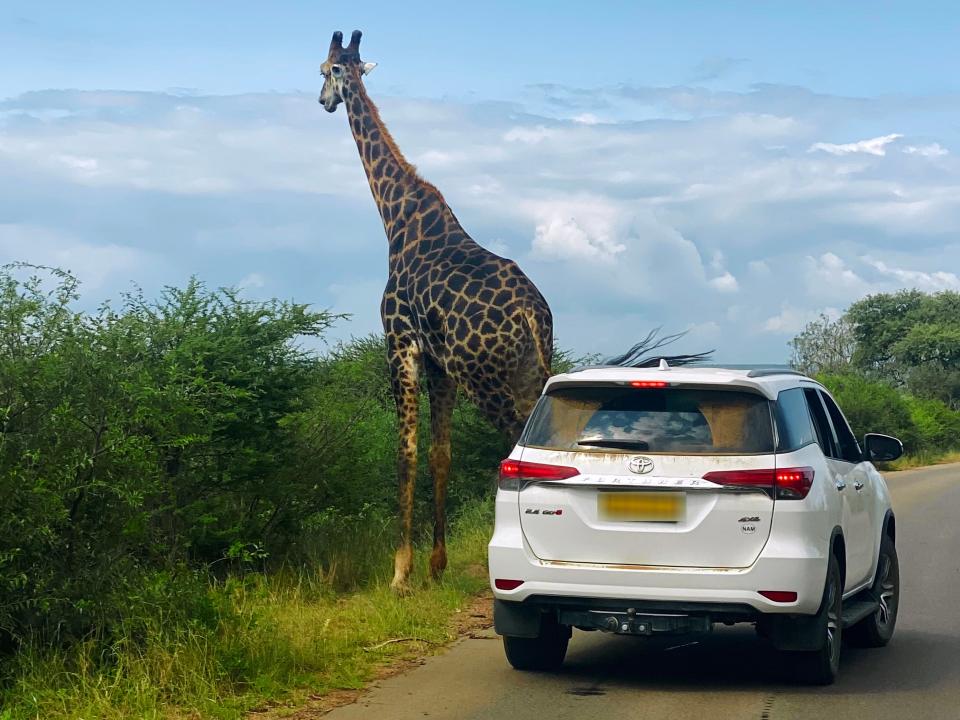
At one point, I walked my bags inside of my accommodations, leaving the door open behind me. When I came out, the neighbors were taking photos of a monkey inside my car.
He was quick because, fortunately, I did not have any food in the car for him to run off with.
Now I know better to stay on top of shutting and locking my car doors when at a game reserve.
We got too close to elephants.
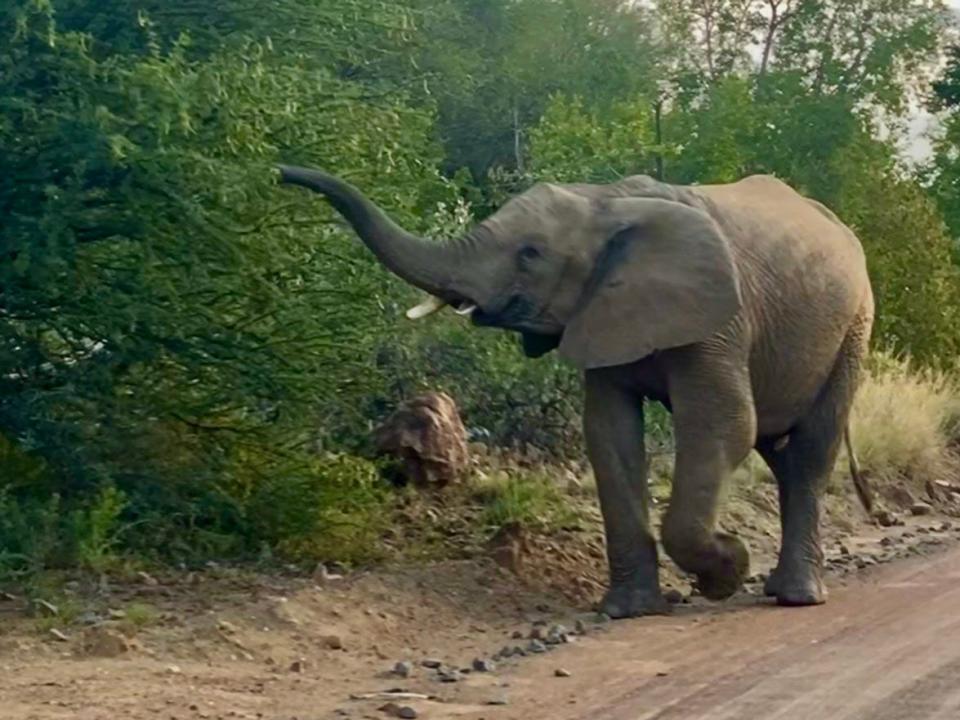
Animals can be unpredictable and safaris are not like a zoo. I learned how quickly a situation can change while watching a herd of elephants eating in Kruger National Park.
They started crossing the road in front of my car, and a large one turned to look right at us and started shaking his head. It seemed clearly displeased with our presence.
I flipped the car into reverse faster than you can say "elephant" but it was a scary moment.
Consuming too much liquid can be risky.
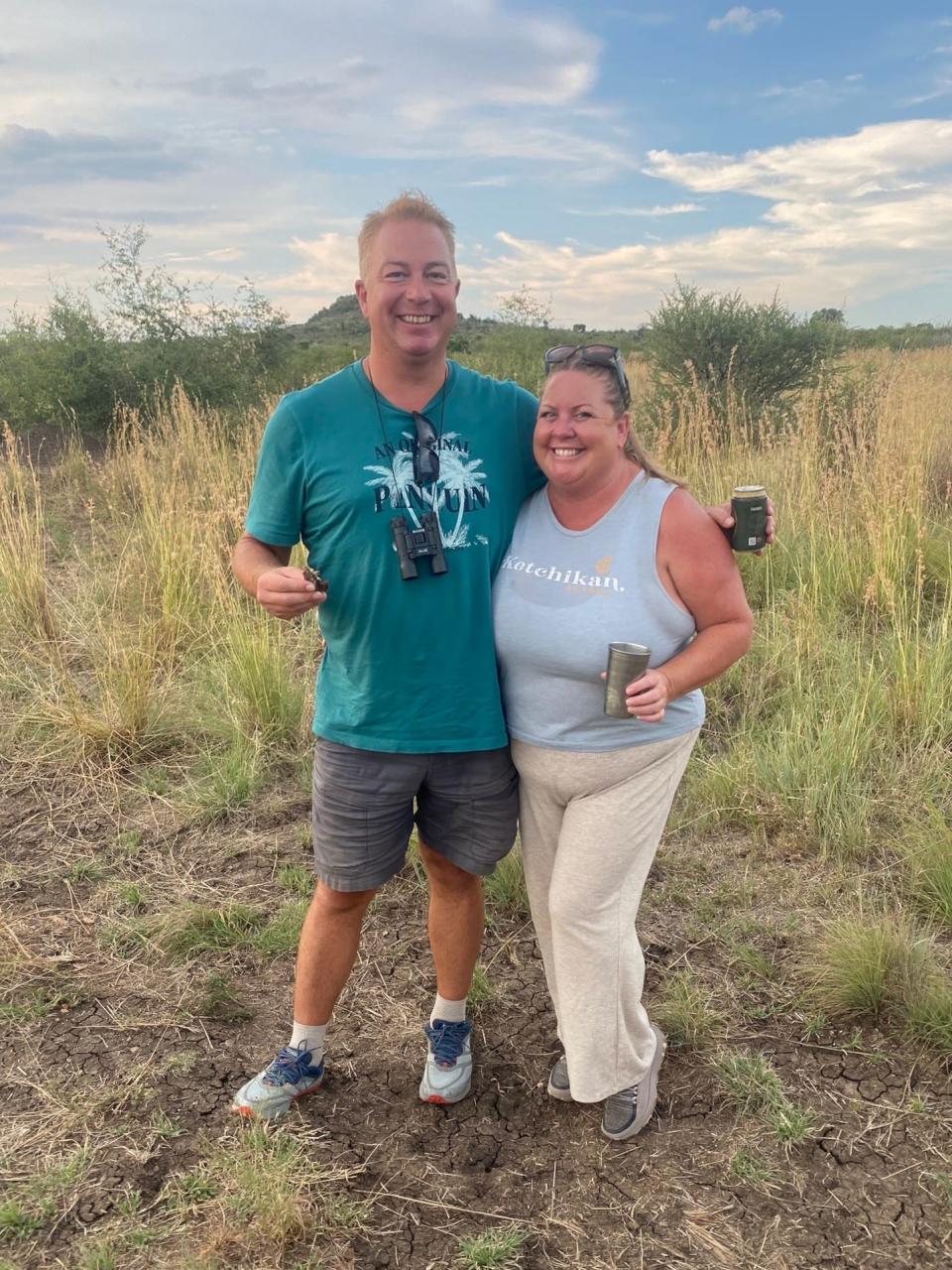
Evening safari drives include a stop in the bush around sunset for a "sundowner" beverage. One of the nights my drink proved to be too much liquid for my bladder.
The problem was that we were following a pride of lions so there was no chance of hopping off the truck to relieve myself.
I was able to hold it but next time I will be more careful with the amount of liquids consumed before and during bush drives.
I was caught off guard by load shedding.
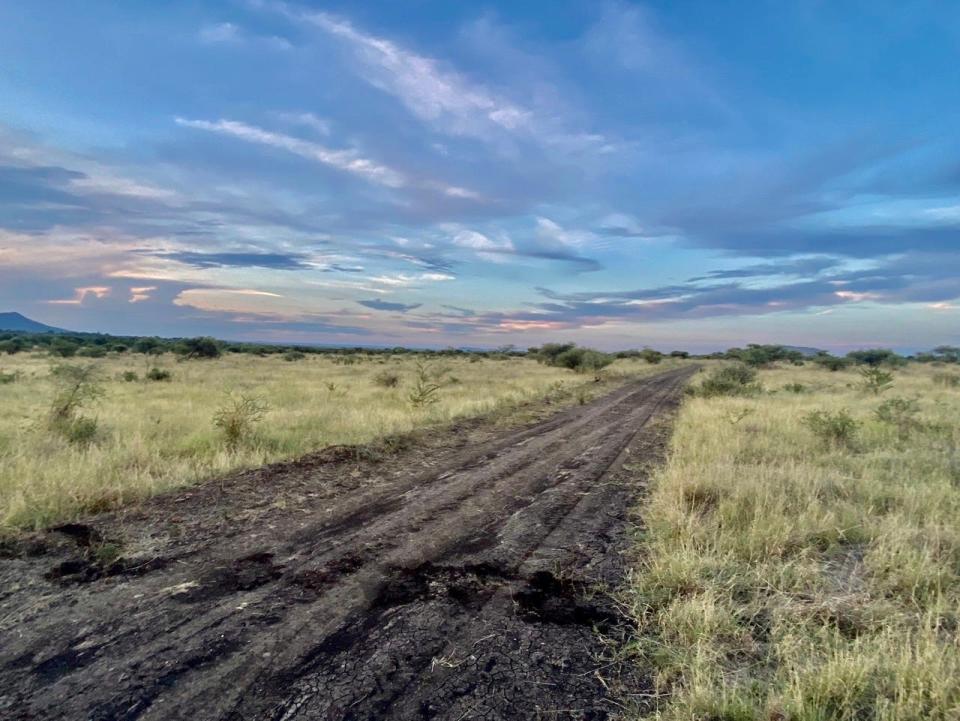
Load shedding is the name for scheduled power outages in South Africa that help prevent the power grid from being overloaded.
Some places have backup generators or solar panels to alleviate power disruptions, but I learned not to expect that to always be the case.
When the power turned off during our trip, I found myself sitting in complete darkness. I scrambled for my phone flashlight but I could've avoided that panic by plugging in the emergency light that was provided.
Read the original article on Business Insider

